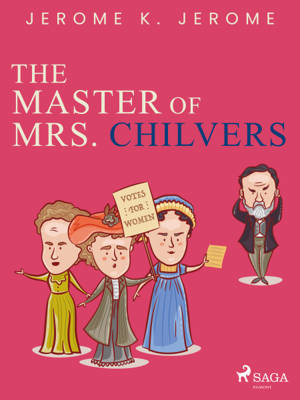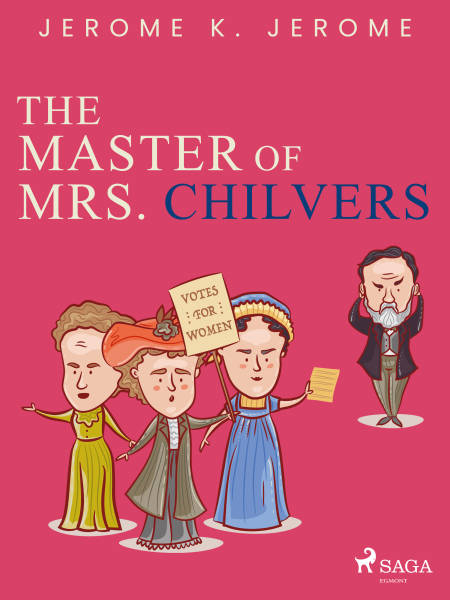
- Retrait gratuit dans votre magasin Club
- 7.000.000 titres dans notre catalogue
- Payer en toute sécurité
- Toujours un magasin près de chez vous
- Retrait gratuit dans votre magasin Club
- 7.000.000 titres dans notre catalogue
- Payer en toute sécurité
- Toujours un magasin près de chez vous
Description
Set in a drawing-room in London’s Russell Square in 1911, ‘The Master of Mrs. Chilvers: An Improbable Comedy’ is a fictional stage play full of wit and warmth, which addresses the issue of women’s rights in Edwardian England. As the play progresses, and Mrs. Chilvers joins the timely cause of women's suffrage, her seemingly sudden commitment to suffragette radicalism shocks her husband and has a large effect on the rest of her upper class family. The four act play by author and playwright Jerome K Jerome, whose other works include 'Three Men in a Boat' and ‘The Observations of Henry’, begins with a detailed introduction to the play with insightfully personal character descriptions. With whiffs of classic Oscar Wilde and a clear preamble for the 2015 film ‘Suffragette’, starring Carey Mulligan and Meryl Streep, Jerome takes on the genre of family drama and class meets equality, feminism and women’s liberation in a touching, humorous and forward-thinking way. It was first performed at The Royalty Theatre, London, on April 26th, 1911, starring actors Mary Rorke as Lady Mogton and Lena Ashwell as Annys Chilvers.
Jerome Klapka Jerome (1859-1927) was born in Walsall, in northern Great Britain, on 2nd May 1859. Orphaned as a teenager, he was forced to leave education at just 14 years old to start working. After jobs as an actor, clerk and a teacher, Jerome published his first book in 1885 based upon is own experiences - ‘On the Stage and Off: The Brief Career of a Would-Be Actor’. Stage plays, books and journalism articles followed suit, including his most successful book – an autobiographical story entitled 'Three Men in a Boat'. Other works include ‘Idle Thoughts of an Idle Fellow’, ‘Second Thoughts of an Idle Fellow’, 'The Observations of Henry' and ‘Three Men on the Bummel’. Jerome founded the weekly magazine ‘To-Day’ in 1893 and edited another magazine named ‘The Idler’ until 1898, whilst also working as a lecturer and writer in England. During World War 1, he wasn’t accepted for active service in the UK’s army so instead enlisted as an ambulance driver in the French army. He died on 14th June 1927 after suffering a stroke.
Jerome Klapka Jerome (1859-1927) was born in Walsall, in northern Great Britain, on 2nd May 1859. Orphaned as a teenager, he was forced to leave education at just 14 years old to start working. After jobs as an actor, clerk and a teacher, Jerome published his first book in 1885 based upon is own experiences - ‘On the Stage and Off: The Brief Career of a Would-Be Actor’. Stage plays, books and journalism articles followed suit, including his most successful book – an autobiographical story entitled 'Three Men in a Boat'. Other works include ‘Idle Thoughts of an Idle Fellow’, ‘Second Thoughts of an Idle Fellow’, 'The Observations of Henry' and ‘Three Men on the Bummel’. Jerome founded the weekly magazine ‘To-Day’ in 1893 and edited another magazine named ‘The Idler’ until 1898, whilst also working as a lecturer and writer in England. During World War 1, he wasn’t accepted for active service in the UK’s army so instead enlisted as an ambulance driver in the French army. He died on 14th June 1927 after suffering a stroke.
Spécifications
Parties prenantes
- Auteur(s) :
- Editeur:
Contenu
- Nombre de pages :
- 78
- Langue:
- Anglais
Caractéristiques
- EAN:
- 9788728263372
- Date de parution :
- 23-02-23
- Format:
- Ebook
- Protection digitale:
- Digital watermarking
- Format numérique:
- ePub







